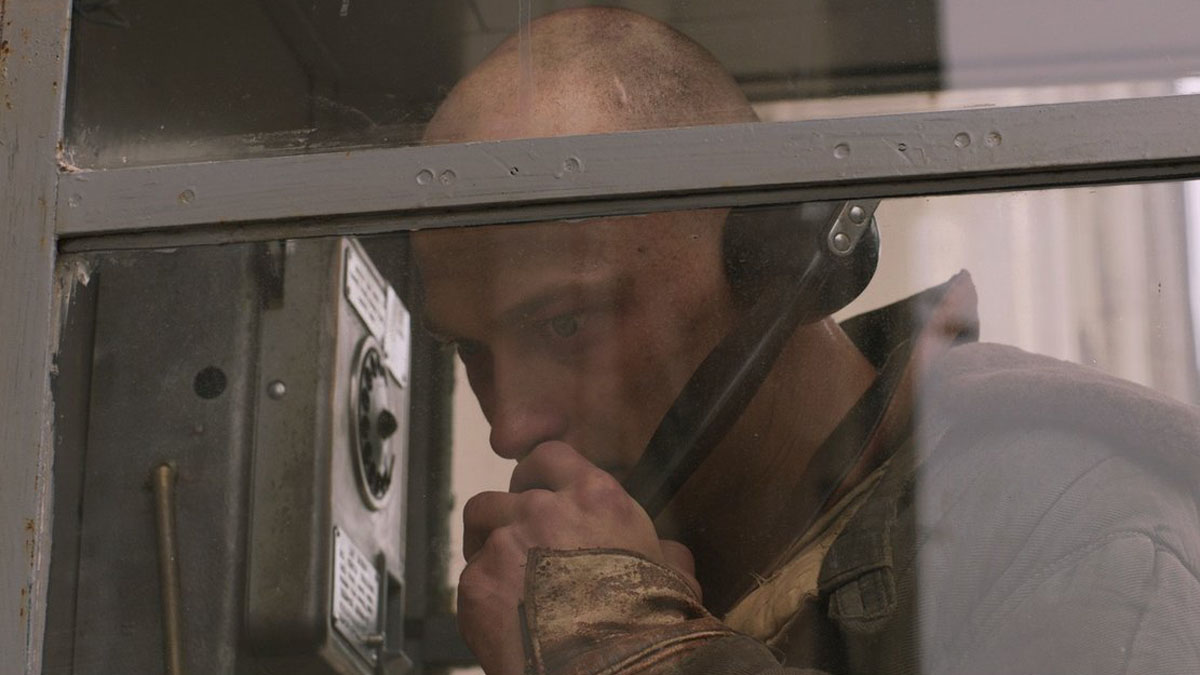
Leningrad, 1938. The Stalinist purges are in full swing, and the secret police have set up shop in an appropriated Tsarist-era palace, all gold leaf and chandeliers, its parquet floors spread thick with hay to soak up the blood from tortured confessions. Young Captain Volkonogov (Yura Borisov of Anora fame) is tight with his mates in the death squad: when not working over enemies of the Revolution, they dance, sing, trade slaps, and bump skulls like boarding-school bros—in matching blood-red tracksuits, heads shaven to a gloss. (The polished male cranium holds a particular appeal for wife-and-husband director/writers Natasha Merkulova and Aleksey Chupov.) But these bad boys’ smooth, glowing heads will soon contort into agonized webs of veins when the bullets start flying the other way, for top management has ordered a purge of the purgers (corresponding historically to the moment Stalin decided his paramilitary had gotten out of control). When Volkonogov sees his old boss leap to his death from a window and his fellow enforcers serially disappear, he rightly reckons he’s next and slips out past the guards just as his name is called.
Volkonogov translates as “wolf-legged,” its letters scrambled from the more common surname Volkogonov—“wolf hunter”—and much of the film is Borisov putting his wolf legs to work, sprinting along streets, up staircases, and across rooftops, predator turned prey (“Peter and the Wolf” plays on a tinny radio in Volkonogov’s communal apartment). But fleeing the authorities is only the first escape in Captain Volkonogov Escaped, the physical escape. The man-on-the-run thriller turns metaphysical when Volkonogov’s best buddy from work, Veretennikov (Nikita Kukushkin), who’s been creatively tortured to death (a gas mask and a Russian folk song are involved), now rises from a mass grave with a message from the other world—a Jacob Marley of the secret police. “Do you know what eternal torments are, Captain?” Veretennikov asks, and noisily rips Volkonogov’s guts out, twisting them around his fist. He tells his friend that the only way to avoid hell is to repent and to receive forgiveness from a victim’s loved one. Then he sulks back into the man-pile of corpses and eternal damnation, leaving his pal (guts back in belly) as shell-shocked as Scrooge. Captain Wolf Legs must now get the addresses of his victims’ families, which means sneaking back into heavily guarded police headquarters. The race for redemption is on in this coupling of an archetypal ghost story—the ghost delivering a warning—with one of the darkest chapters in Soviet history. It’s not capitalist excess, as in Dickens, but communist zealotry that has led this protagonist into sin.
In the repeated refusals to forgive that follow, we meet some nicely drawn noir-esque characters. Captain Volkonogov tracks down the father of a young man he beat into confessing to “participation in a student terrorist organization.” The former father—he legally renounced his son for being a traitor and wishes he could have attended his execution—is a tricky customer. Veteran actor Yury Kuznetsov, who actually served in the KGB border guard, seems to cloud his face and stony blue eyes to portray a man taught by experience never to remove his mask. Then there is the executioner in a butcher’s apron, nicknamed “Cartridge” (because he only needs one), played by a Karloffian Igor Savochkin with a mix of fatherly care and indifference to human life. After shooting wrapped, Savochkin was diagnosed with liver cancer and only outlived the film’s premiere in Venice by two months—the pallor and gauntness are not merely makeup. And there is the executed accountant’s widow who’s lost her mind. When told her husband was beaten into confessing himself a spy, she takes off her clothes and speaks riddles to a frozen Volkonogov.
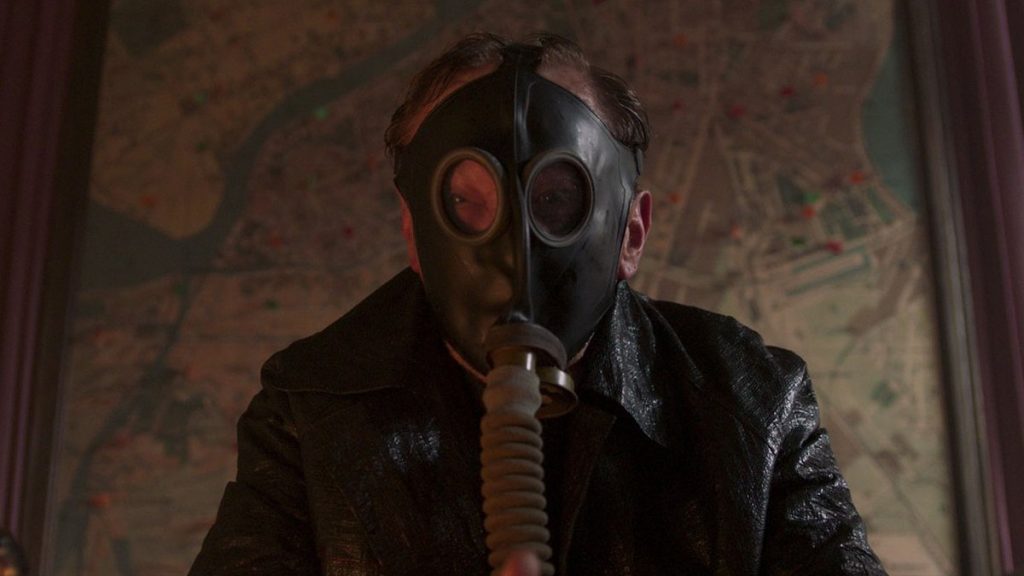
Lovers of post-Soviet Russian cinema will feel echoes from past masters of absurdist Stalinist nightmares, such as Aleksei German, in particular his Khrustalyov, My Car! (1998)—the bald male head, authoritative bodies toned through gymnastics, the grotesque comedy of the purges—and Aleksandr Rogozhkin’s Chekist (1992)—with its artfully arranged, Boschian piles of corpses. Lovers of the run-down, surreal Soviet aesthetic will bask in the world of Captain Volkonogov Escaped: a louring zeppelin, creaky trams, gas masks, pipes clinging like tentacles to crumbling buildings, and heaps upon heaps of dilapidated grandeur (even if it doesn’t reach the depths of murkiness and grime plumbed in celluloid by Chekist).
The film wavers between realism and surrealism. At first glance, this Leningrad may look very 1938, but the historical accuracy of the decorations is often undermined: the portrait on the wall at headquarters is not of Stalin but a mishmash of Soviet authoritarian types; the street graffiti definitely not from Soviet times; and nobody in the NKVD (the 1930s KGB) worked in tracksuits, which were the tribal wear of criminal gangs in the anarchic, post-Soviet 1990s. Added to this, the people seem barely more than ghosts. The new secret-police boss, Major Golovnya (played with sunken-eyed intensity by former real-life cop Timofey Tribuntsev)—who’ll be shot in 24 hours if he can’t find Volkonogov—might turn zombie any second: he’s pale, sweaty, and coughing up blood when no one’s looking. So when Volkonogov collapses in a ruinous courtyard, exhausted from running and almost certainly facing eternal damnation (“There’s no one left for you to ask for forgiveness,” the Major tells him over the phone), I thought: this is when he wakes up to find he’s already dead and has been racing around a city of the dead. Only the story doesn’t go there. Something—maybe the ghost of Socialist Realism—is holding it back from a palpable urge to get further away from realism, history, and Christianity… and go mystic.
Co-director Merkulova studied and worked in Siberia, where the shamanic traditions of the indigenous Buryat people still resonate, and has engaged this theme in previous films. That mysticism comes through, and Captain Volkonogov Escaped might be read as a shaman vision of a parallel world where shades from different times jostle one another in spectral streets, where the line between the living and the dead has dissolved. Some in Russia read the movie more literally, however, as another smear job on the homeland, a chernukha (from “black,” as in a black smudge): a gloomy caricature of Russia catering to foreigners. Is there a gratuitous element to the dreariness, the lack of appealing characters? A scene on a tram shows us close-ups of the passengers—vacant stares, haggard faces, everybody suicidal. Thus are the dangers inherent in “historical horror.” One Russian-language review was titled: “Nauseating, Boring Anti-Sovietism, Disrespect to Our Ancestors, and Yura Borisov,” and a well-known podcaster delivered his review with a bucket in case he had to throw up while talking about the movie. Though the Russian Ministry of Culture helped fund the film—shot in St. Petersburg during the aftershocks of COVID and just before the war—and it received no shortage of prizes at Russian festivals, it was never released theatrically in its home country. 🩸
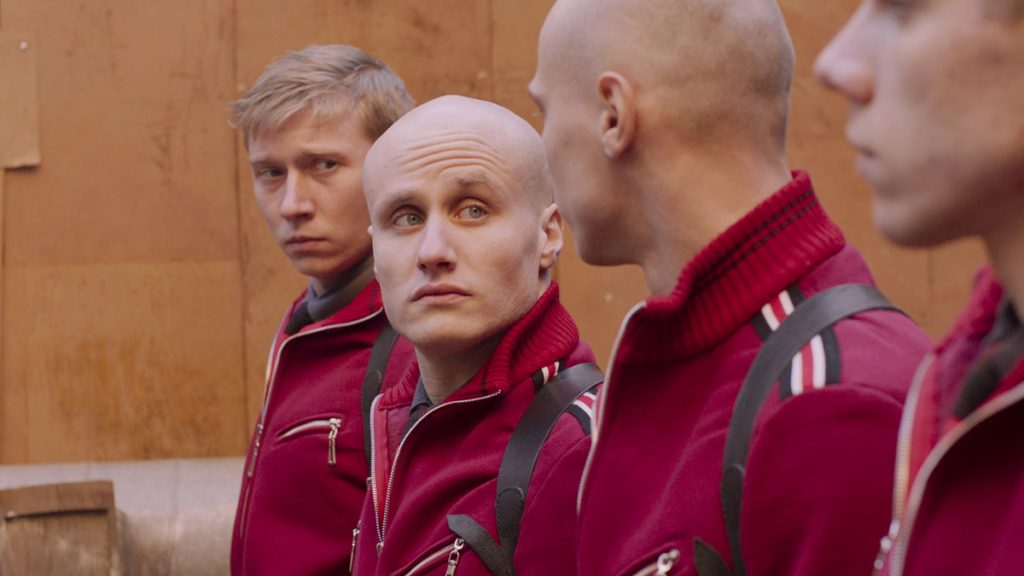
is a freelance writer and director who lived in Moscow for many years. He directed the documentary feature Stalin Thought of You.
In 1966, two Moscow film students pitched a horror feature based on a classic Slavic witch tale, Nikolai Gogol’s Viy (1833). The khudsovety (artistic committees) that evaluated film...
BY KEVIN McNEER | August 6, 2024
I recently visited Queen Hatshepsut, the model for the mummy in The Awakening and the novel it’s based on: Bram Stoker’s wild horror/fantasy The Jewel of Seven Stars. Stoker was with me in spirit in Cairo’s Grand Egyptian Museum,
BY KEVIN McNEER | November 9, 2024
Andrzej Żuławski will be your guide through hell, giddy as Virgil his first day on the job. He conceived his second theatrical feature, 1972’s The Devil (aka Diabel), as a political allegory for the witch hunts launched by the Polish...
BY TOM PHELAN | December 30, 2023
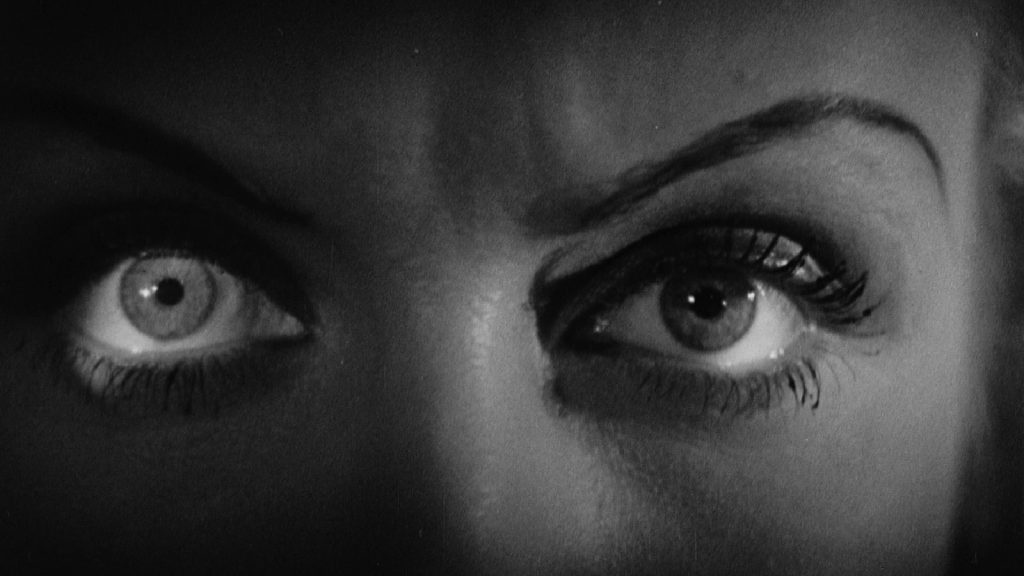
This pre-Code offering packs a lot of story into its typically brisk running time, with several plot threads weaving together a (not always successful) tapestry of spooky and criminal doings.
READ MORE >
BY ANN OLSSON | Month 00, 2021
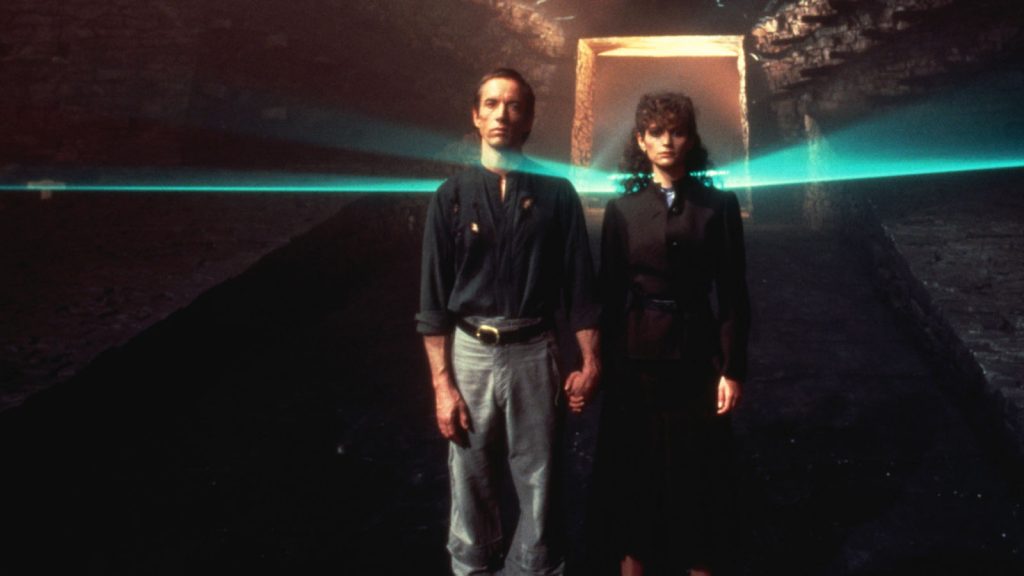
In what could be the fastest-resulting rape revenge movie, a drunken lout brutally forces himself on Ida, the young woman who doesn't return his affections, during a party over Labor Day.
READ MORE >
BY LAURA KERN | Month 00, 2021
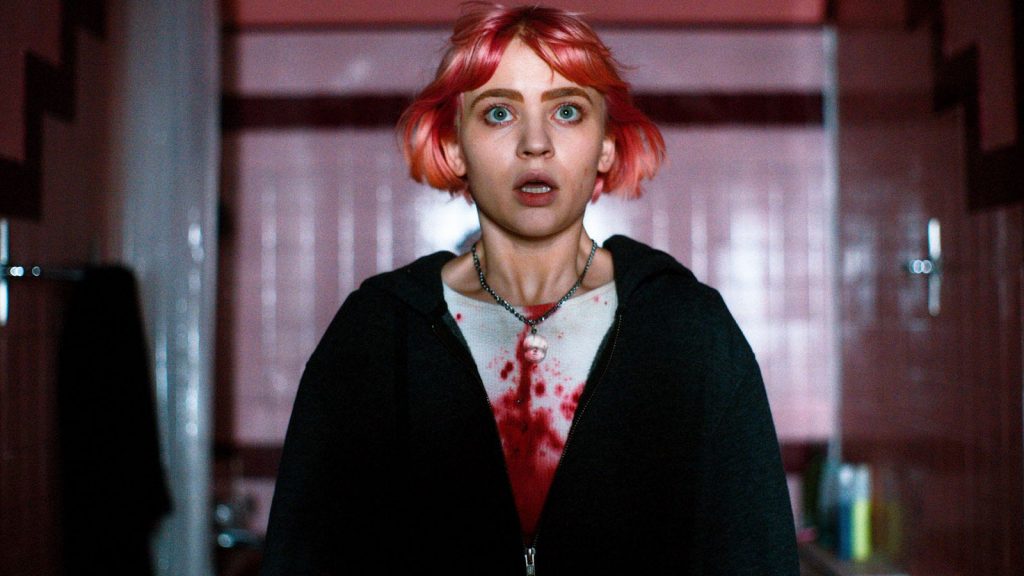
Beast is a lot of movies in one package - fractured fairy tale, belated-coming-of-age story, psychological drama, regional horror film - but above all it's a calling card for its leading lady, Jessie Buckley.
READ MORE >
BY LAURA KERN | Month 00, 2021